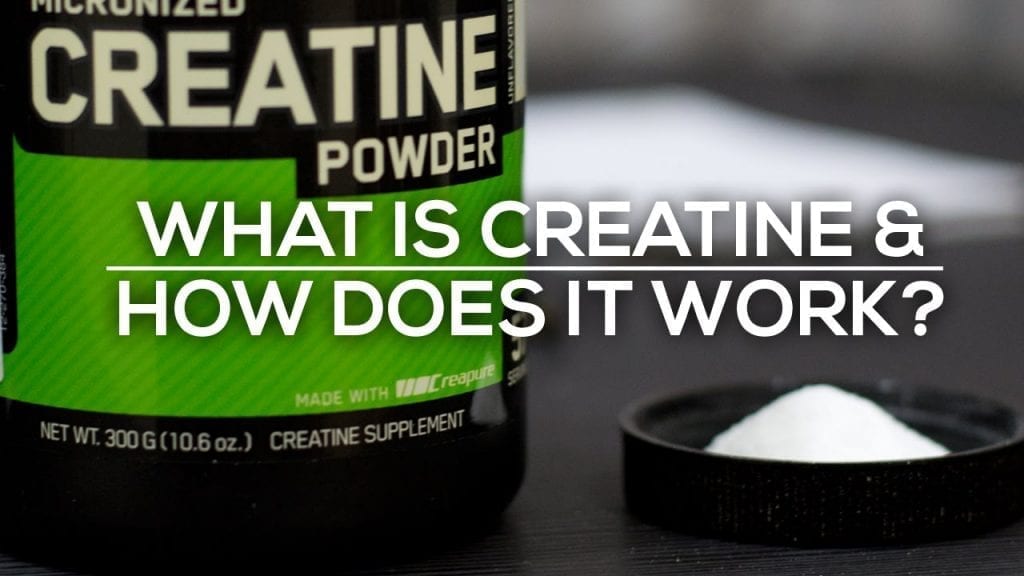Is Creatine Safe? Exploring The Benefits And Risks Of Creatine Use

Table of Contents
The Proven Benefits of Creatine Supplementation
Creatine monohydrate is one of the most researched and widely used sports supplements globally. Its popularity stems from its proven ability to enhance athletic performance and promote muscle growth. Let's explore the key benefits:
Enhanced Muscle Growth and Strength
Creatine works by increasing the availability of adenosine triphosphate (ATP) in muscle cells. ATP is the primary energy source for muscle contractions. By increasing ATP production, creatine allows for more intense and prolonged workouts, leading to greater muscle growth and strength gains.
- Mechanism: Creatine supplementation increases the concentration of phosphocreatine in muscles. During high-intensity exercise, phosphocreatine rapidly replenishes ATP, delaying fatigue and allowing for more repetitions and heavier weights.
- Scientific Evidence: Numerous studies have demonstrated significant improvements in muscle mass, strength, and power output in individuals using creatine supplementation. These improvements are particularly noticeable in high-intensity, short-duration activities.
- Specific Benefits: Expect benefits such as increased power output during weight training, improved performance in sprinting and other anaerobic activities, and faster muscle recovery. Creatine muscle growth is a well-documented effect, often observed alongside significant strength gains.
Improved Cognitive Function
Beyond its impact on physical performance, research suggests that creatine may also enhance cognitive function. While more research is needed, several studies hint at its potential cognitive enhancement benefits:
- Improved Memory and Learning: Some studies suggest that creatine may improve memory, particularly working memory and verbal learning. This effect is thought to be related to creatine's role in energy metabolism in the brain.
- Cognitive Enhancement: Creatine's potential cognitive enhancement effects have been observed in both healthy individuals and those with certain neurological conditions. Further research is needed to fully understand the mechanisms and extent of these effects. However, the preliminary data is encouraging for creatine brain function.
Neurological Protection
Emerging research indicates that creatine may offer neuroprotective effects:
- Brain Health: Studies suggest a potential role for creatine in protecting against neurodegenerative diseases and improving brain health overall. This neuroprotection may be due to creatine's antioxidant properties and its ability to improve cellular energy metabolism in the brain.
- Specific Conditions: While research is ongoing, some studies show promising results in relation to certain neurological conditions. However, creatine should not be considered a treatment for any neurological condition without consulting a healthcare professional. More research is needed to confirm these potential benefits regarding creatine neuroprotection.
Understanding the Potential Risks and Side Effects of Creatine
While generally safe, creatine supplementation can cause some side effects, most of which are mild and temporary. However, understanding the potential risks is crucial for informed decision-making.
Common Side Effects
The most frequently reported creatine side effects are usually mild and resolve on their own:
- Water Retention: Creatine causes water retention, leading to weight gain. This is a common effect, but usually not harmful.
- Stomach Cramps and Nausea: Some individuals may experience stomach cramps or nausea, particularly when starting supplementation or taking high doses. These symptoms are often alleviated by reducing the dosage or taking creatine with food.
- Dehydration: While not strictly a side effect of creatine itself, dehydration can be exacerbated by the increased water retention it causes. Adequate hydration is crucial when using creatine.
Rare but Serious Side Effects
Serious side effects from creatine are rare and are often linked to pre-existing health conditions or misuse:
- Kidney Problems: While rarely reported, some studies have associated high doses of creatine with potential kidney issues in individuals with pre-existing kidney problems. Healthy individuals generally do not experience kidney problems from creatine supplementation.
- Liver Damage: Liver damage related to creatine is also extremely rare and usually connected to pre-existing liver conditions or other factors.
- Important Note: Individuals with pre-existing health conditions, particularly kidney or liver issues, should consult a doctor before using creatine.
Interactions with Medications
Creatine can interact with certain medications:
- Diuretics: The combination of creatine and diuretics can lead to excessive water loss and electrolyte imbalances.
- Other Medications: Always inform your doctor or pharmacist about your creatine supplementation if you are taking other medications to avoid potential interactions.
Safe and Effective Creatine Use: Dosage and Guidelines
To maximize benefits and minimize risks, follow these guidelines for creatine use:
Recommended Dosage
The typical recommended dosage of creatine monohydrate is 3-5 grams per day.
- Loading Phase: Some individuals opt for a loading phase of 20 grams per day for the first 5-7 days to rapidly saturate muscle creatine stores. However, a loading phase isn't necessary and may increase the risk of side effects.
- Maintenance Phase: After the loading phase (or if one is skipped), a daily maintenance dose of 3-5 grams is sufficient to maintain elevated muscle creatine levels.
Choosing a Reputable Brand
Choose high-quality creatine monohydrate from reputable brands:
- Purity: Look for brands that provide third-party testing to ensure purity and the absence of contaminants.
- Credibility: Select brands with a strong reputation and positive customer reviews.
Hydration and Diet
Adequate hydration and a balanced diet are crucial for maximizing creatine's benefits and minimizing side effects:
- Hydration: Drink plenty of water throughout the day, especially during and after workouts. This helps prevent dehydration and promotes optimal creatine uptake by muscle cells.
- Diet: A balanced diet provides the nutrients needed to support muscle growth and recovery, enhancing the effects of creatine supplementation.
Conclusion: Making Informed Decisions About Creatine
Creatine supplementation offers several potential benefits for muscle growth, strength, and even cognitive function. However, like any supplement, it carries potential risks. The most common side effects are usually mild and temporary, but rare, more serious side effects are possible, particularly in individuals with pre-existing health conditions. By using creatine at the recommended dosage, choosing reputable brands, and maintaining adequate hydration, you can significantly reduce the risk of experiencing negative side effects.
Ultimately, the decision of whether or not to use creatine is a personal one. By understanding the benefits and risks of creatine supplementation, you can make an informed choice that aligns with your health goals. Consult a healthcare professional before starting any new supplement regimen, especially if you have pre-existing health conditions or are taking medication. Remember to research creatine safety, weigh the creatine benefits against the creatine risks, and make the best decision for your individual needs.

Featured Posts
-
 Novini Pro Oleksiya Poroshenka Mistseperebuvannya Ta Podiyi
May 17, 2025
Novini Pro Oleksiya Poroshenka Mistseperebuvannya Ta Podiyi
May 17, 2025 -
 West Valley City To Get New University Of Utah Hospital And Medical Center
May 17, 2025
West Valley City To Get New University Of Utah Hospital And Medical Center
May 17, 2025 -
 Best Online Casinos In Canada 2025 A Players Guide Featuring 7 Bit Casino
May 17, 2025
Best Online Casinos In Canada 2025 A Players Guide Featuring 7 Bit Casino
May 17, 2025 -
 Top Crypto Casinos Comparing Jackbits Instant Withdrawal System
May 17, 2025
Top Crypto Casinos Comparing Jackbits Instant Withdrawal System
May 17, 2025 -
 Oleksiy Poroshenko Novini Foto Ta Biografiya
May 17, 2025
Oleksiy Poroshenko Novini Foto Ta Biografiya
May 17, 2025
